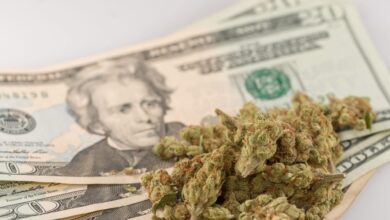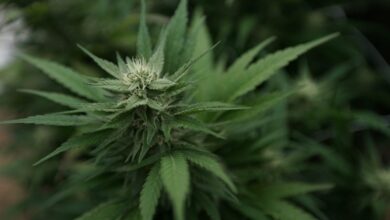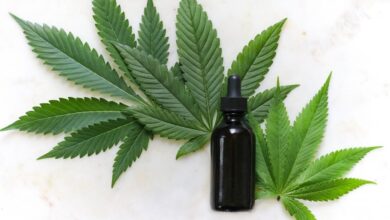Past Marijuana Use Shouldn’t Disqualify For Security Clearances, Trump’s Intel Director Pick Tulsi Gabbard Says, But Ongoing Use Is ‘More Complex’

President Donald Trump’s option to function director of nationwide intelligence (DNI), former Rep. Tulsi Gabbard (D/R-HI), says that previous marijuana use mustn’t disqualify an individual from receiving a safety clearance—however “ongoing” use of hashish is a “extra complicated” eligibility consideration.
In written responses to quite a lot of questions for the report (QFRs) from members of the Senate Intelligence Committee, Gabbard answered two questions on hashish coverage. And whereas she’s beforehand advocated for marijuana legalization and even hinted at assist for broader drug decriminalization, the nominee hedged considerably when requested concerning the challenge as a part of her affirmation course of.
One query requested whether or not Gabbard agreed with present DNI coverage “that previous marijuana use shouldn’t be determinative within the adjudication of safety clearances.” It additional requested if she felt “ongoing marijuana use ought to likewise not be determinative and ought to be handled like alcohol use.”
The previous congresswoman replied, “I agree with the present DNI coverage that previous marijuana use shouldn’t be determinative within the adjudication of safety clearances, supplied it doesn’t point out broader points with judgment or reliability.”
“Nonetheless, ongoing marijuana use is extra complicated, because it stays unlawful underneath federal legislation,” she stated. “It have to be fastidiously evaluated throughout the context of the applicant’s general habits, consistency with authorized obligations. and talent to safeguard classifIed info.”
The nominee was additionally requested extra broadly: “Do you imagine that hashish use ought to ever be the idea for denying a person eligibility for entry to labeled info?”
Once more, she equivocated, reiterating that safety clearance resolution “have to be made on a case-by-case foundation, considering the person’s general judgment, reliability, and talent to safeguard classifIed info.”
“As hashish legal guidelines evolve on the state stage, the [intelligence community] should steadiness adherence to federal legislation with an understanding of societal adjustments,” Gabbard stated. “If confirmed, I’d work to make sure that safety clearance determinations are truthful, constant, and aligned with nationwide safety wants whereas appropriately contemplating particular person circumstances.”
The Intelligence Committee’s QFRs don’t point out which members submitted every query, however one member of the panel, Sen. Ron Wyden (D-OR), has spent years working to ban safety clearance denials for candidates to intelligence businesses like CIA and NSA simply because they admitted to prior hashish consumption.
In 2023, the committee voted to amend an intelligence oversight invoice to incorporate a provision from Wyden that might obtain that reform, however it was not finally enacted.
Former President Joe Biden’s DNI, Avril Haines, had individually stated in 2023 that it’s not the federal authorities’s present coverage to disclaim folks safety clearances based mostly on previous marijuana use alone, stating that it’s counterproductive to recruitment efforts, particularly amid the rising legalization motion.
However Gabbard’s wishy-washy responses to the QFRs appear considerably incongruent along with her drug coverage positions in Congress and likewise when she was operating for the 2020 Democratic presidential nomination.
Over her eight years in Congress, Gabbard established herself as a number one advocate for marijuana and hemp reform by introducing quite a few items of hashish laws and actively working to construct bipartisan assist across the challenge.
“The extra info that I’ve realized, the extra analysis that I’ve carried out, it exhibits how, primary, outdated our legal guidelines are because it pertains to hashish particularly and the way a lot alternative there’s, once more from a medical perspective in addition to from an financial perspective, particularly associated to hemp,” she instructed Marijuana Second in 2020.
She additionally stated in 2019 that “the path we have to take is decriminalizing a person’s alternative to make use of no matter substances which are there whereas nonetheless criminalizing those that are traffickers and sellers of those medication.”
Picture component courtesy of Lorie Shaull.




